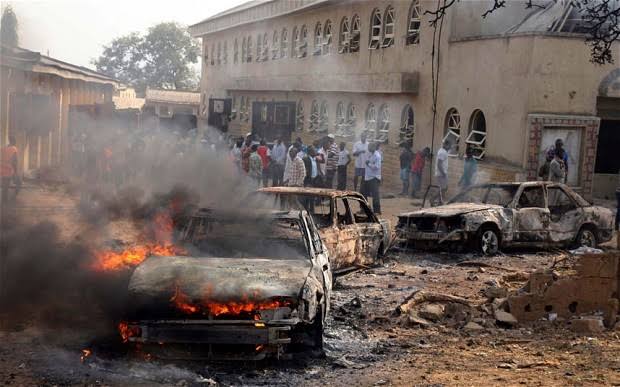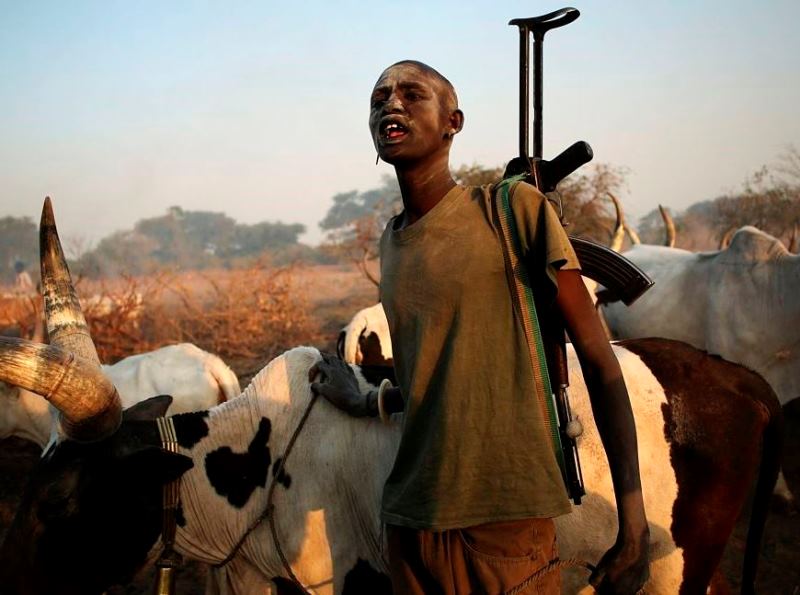Politics
CAN Divided over U.S. Claims of Christian Genocide in Nigeria

The Christian Association of Nigeria (CAN) appears divided over allegations of “Christian genocide” in the country, following a wave of claims by United States lawmakers and public figures accusing Nigerian authorities of failing to protect Christian communities from terror attacks.
While CAN’s national leadership expressed concern over targeted assaults on Christians, another faction of the body has dismissed the notion of a faith-based genocide, insisting that the violence afflicting parts of the country affects both Christians and Muslims.
The renewed controversy was triggered by U.S. Senator Ted Cruz, who recently introduced a bill titled the Nigeria Religious Freedom Accountability Act to sanction officials “complicit in the persecution of Christians.” The senator, alongside West Virginia congressman Riley Moore, accused Nigerian authorities of ignoring “systematic slaughter” by Islamist extremists.
Their stance was reinforced by U.S. talk show host Bill Maher, who alleged that Christians were being “systematically exterminated” in Nigeria by terrorist groups, prompting renewed global debate about the nature of Nigeria’s insecurity crisis.
CAN leadership acknowledges attacks, urges government action
In a statement issued by Archbishop Daniel Okoh, CAN President, the association condemned ongoing violence in parts of the country, noting that Christian communities in northern Nigeria have “suffered severe attacks, loss of life, and the destruction of places of worship.”
Okoh urged the Nigerian government to act decisively, stressing that “these realities are painful reminders of the urgent need for security agencies to protect every citizen, regardless of region or religion.”
He noted that CAN had repeatedly engaged international bodies, including the International Criminal Court (ICC) and global Christian organisations, to draw attention to the plight of affected communities.
However, Okoh cautioned that the pursuit of justice must be anchored on truth and inclusivity. “The pain of Christian families torn apart by violence must never be treated as mere statistics,” he said. “Nigeria’s healing will not come from denial or blame, but from courage – the courage to face our collective failures and rebuild trust.”
CAN official dismisses ‘genocide’ label
But in a separate interview, CAN’s Director of National Issues and Social Welfare, Abimbola Ayuba, said it was misleading to describe the situation as a “Christian genocide.” He noted that extremist violence had claimed lives across faiths and regions, arguing that external groups were exploiting Nigeria’s insecurity for political ends.
“All over Nigeria, we have seen killings that are not faith-specific,” Ayuba said. “In some states, it appears Christians are the victims, while in others, Muslims have been attacked during prayers or in their mosques. This insurgency spares no one.”
He warned that foreign advocacy could deepen divisions rather than foster solutions. “Sometimes, our challenges are magnified by groups seeking to attract foreign sympathy and intervention,” he added. “If they label Nigeria a ‘country of particular concern,’ everyone suffers – Christians, Muslims, and others alike.”
Ayuba urged Nigerian stakeholders to pursue homegrown solutions. “We need an all-of-society response to this crisis. Instead of running to America, we should strengthen our local institutions and ensure accountability within our own system,” he said.
Government denies U.S. allegations
The Nigerian government has also rejected the U.S. claims. On September 30, President Bola Tinubu described allegations of religious persecution as “unfounded,” asserting that Nigeria’s strength lies in its religious and cultural diversity.
“No religion is under threat in this country,” Tinubu said in Owerri, Imo State. “After more than six decades of independence, Nigerians have learned to appreciate their diversity as a source of unity, not division.”
Similarly, Minister of Information Mohammed Idris dismissed the genocide narrative as “ignorant, false, and baseless,” adding that Nigeria continues to prioritise the protection of all citizens regardless of faith.
Global and domestic reactions
The U.S. bill proposed by Cruz and Moore has reignited debate among religious leaders and rights groups about whether the Nigerian government has done enough to tackle sectarian violence.
While international observers argue that attacks on Christian communities have become alarmingly frequent, many local analysts note that insecurity has affected both Muslims and Christians across the country, from jihadist violence in the North-East to banditry and communal clashes in the Middle Belt and North-West.
Security experts warn that framing the conflict through a purely religious lens could obscure its complex socio-political roots, including competition over land, poverty, and weak governance.





